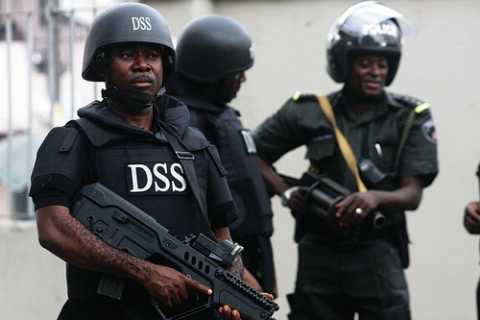How DSS raids have affected Nigerian judiciary
While the debate over the recent raids and planned prosecution of some judges arrested by the Department of State Services (DSS) rages, some observers are concerned with the image of the judiciary after the dust settles. While some observers view the development as necessary to cleanse the judiciary and restore its glory, others fear it […]


While the debate over the recent raids and planned prosecution of some judges arrested by the Department of State Services (DSS) rages, some observers are concerned with the image of the judiciary after the dust settles.
While some observers view the development as necessary to cleanse the judiciary and restore its glory, others fear it might have set off a catastrophic turn in one of the nation’s three arms of government.
The operations were carried out in the wee hours of October 8 and 9 in the homes of Justices Sylvester Ngwuta and John Inyang Okoro of the Supreme Court; Justices Adeniyi Ademola and Nnamdi Dimgba of the Federal High Court in Abuja and Justice Mu’azu Pindiga of the High Court, Gombe.
One of the affected judges, Justice Ademola, who sensed some form of misgivings among court users, on Monday advised that anybody who is not confident in his court, may apply for transfer of their case to another judge.
“As far as we are concerned, we have been asked to maintain our seats, so that is the position of things,” he said.
Abang Odok Ogar, who has offices in Abuja and Calabar, Cross River State, argues that the raids and the negative publicity in their wake, have not significantly affected the image of the judiciary.
“I have been in Calabar attending courts, and the judges are still sitting, there has never been any indication of disrespect on the sanctity of the judiciary,” Ogar said. “So I don’t think the judiciary and its image have been substantially affected by the incident.”
Also speaking in this vain, a lawyer who craved anonymity said nothing has changed since the DSS raids because some Nigerians have always accused the judiciary of compromise when they lose a case, describing them as sore losers.
constitutional lawyer and human rights activist, Mike Ozekhome (SAN), on his part praised the judiciary for taking a tough stand to protect the sanctity of the judiciary following the raids.
“I have always stood with the NJC on its tough stance on this primitive, bestial raids on the homes of judges in the wee hours of the morning with hooded and masked officials who say they are security agents,” he said.
He also criticised the call for judges to step down for trial saying it negates Section 36 of the Constitution, which presumes them innocent until arraigned before a competent court and found guilty.
“I agree with the NJC totally, I totally disagree with the NBA and my fellow Senior Advocates of Nigeria.
“They should never be cowed or intimidated to the bidding of the executive arm of government. The day they do that, the judiciary is annexed, subjugated and it is bye bye to democracy,” he added.
The Convener of Lawyers for Promotion of Justice and Good Governance, Barrister Joe Nwokedi said the attitude of the DSS to the judges was received with mixed feelings by the Nigerian people. He said while some applauded it because of their belief in the anti- corruption war of the present administration, majority, including himself condemned it because it holistically violated the constitutional powers granted to the NJC to exclusively handle judicial affairs, as regards dismissal and disciplinary action against any erring judge before handing such a judge over to law enforcement agencies for prosecution as enshrined in our 1999 constitution.
But an Abuja based lawyer, Charles Ndukwe believes the judiciary has been adversely affected by the raids which, he said, will take a while to manifest.
“The dimension I have seen is when a judge is presiding and he is looking at his back, can you say he is independent?” he asked. “This is why when you bring some applications these days they will quickly dismiss them as if someone is breathing down their neck.”
He, however observed that both sides – the executive and judiciary – are learning from the development citing the new code for judges which was introduced last week by the NJC and the recent directive by President Muhammadu Buhari for the DSS to hand over the case files of the judges to the Economic and Financial Crimes Commission (EFCC) as signs of progress.
“I believe it is a wakeup call and in the process we will have some stability,” he added.
The judiciary serves for the interpretation of laws for the state within the Doctrine of Separation of Powers. The system of adjudication of disputes is one of the oldest forms of government in any society.
Within the democratic government with three arms enunciated by Lord Baron Montesquieu – namely the executive, legislature and judiciary – it is the judiciary that the other two resort to where they run into some dispute.
This situation ensures that there is due process of law, checks and balances, that there is common law and eradicates the tyranny of the majority. This is what the country’s democracy requires.
